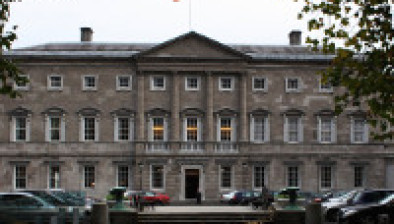High Court: IPAT decision refusing protection for man claiming to be forced to become a fetish priest upheld

The High Court has upheld a decision by the International Protection Appeals Tribunal (IPAT) which rejected a man’s claim that he was in fear for his life for refusing to become a fetish priest in Ghana. The man claimed to have been kidnapped and beaten by his family members and would have been forced to give up his job.

About this case:
- Citation:[2022] IEHC 403
- Judgment:
- Court:High Court
- Judge:Mr Justice Mark Heslin
Delivering judgment in the case, Mr Justice Mark Heslin held that the IPAT lawfully determined that the applicant lacked credibility having regard to the inconsistent accounts given to the Tribunal. In particular, the applicant was evasive and incoherent on whether he went to police in Ghana and why he returned to Ghana if he was in fear for his life.
Background
The applicant was from Sunyani, Ghana and was married with three children. The applicant’s family were from an idol-worshipping faith and his father had been the fetish priest serving as a mediator between spirits and the living. His father died in 1992 and his grandmother took over the role until the applicant was old enough.
In 2016, the applicant claimed that his family came to his business and asked him to become the fetish priest. When he refused, he claimed that his family locked him in the shrine house and left him without food or water for three days until he agreed to act in the role. The applicant went to hospital after the kidnapping.
In December 2017, the applicant claimed to have burned down the shrine after converting to Christianity. He claimed to be beaten by family members and sent to hospital for several months. Subsequently, the applicant fled to South Africa in March 2018.
He returned to Ghana in May 2018, staying indoors while arranging the sale of his business over social media. He then travelled to Ireland in September 2018 and sought protection, claiming that he feared that he would be killed by family members if he returned home.
On appeal to the IPAT, the credibility of the applicant’s claim was rejected, particularly on the issues of whether he told Ghanian police about the violence and why he returned home if he feared for his life. The applicant had previously stated on multiple occasions in his written application that he did not tell police about the events, but backtracked in an interview and claimed that the police would not deal with matters involving spirits or wanted bribes.
Similarly, on the issue of his return to Ghana, it determined to be not credible that the applicant would return to the country if he was genuinely in fear of his life. His interview answers varied significantly and included difficulty with accommodation in South Africa, illness, a desire to sell the shop and a lack of money. The IPAT took the view that the applicant was evasive and, when challenged on one reason for his return, provided a new explanation.
Accordingly, the IPAT did not grant protection to the applicant, holding that he was not entitled to the “benefit of the doubt” provision under section 28 of the International Protection Act 2015 as his general credibility was not established. The applicant subsequently brought judicial review proceedings seeking to quash the decision.
High Court
Mr Justice Heslin began by noting that he was not entitled to substitute his own opinion on the merits of the evidence and was instead tasked with determining whether the lawfulness of the procedure adopted by the IPAT (I.R. v. Minister for Justice, Equality and Law Reform [2015] 4 IR 144).
The court outlined the evidence, including the relevant interview records and written application of the applicant for protection. The court observed that the applicant had stated on multiple occasions in the questionnaire that he had not told police about the events and did not make any corrections in his section 35 interview.
The court further outlined how the applicant had changed his story regarding his reporting of the matter to police in the appeal to the Tribunal. It was held that the adverse finding on credibility was open to the IPAT in light of the conflicting accounts given by the applicant at various stages. The Tribunal did not make any error of fact in reaching its decision and therefore the “Tribunal manifestly had grounds to support this adverse conclusion”.
The court was not a position to undercut the IPAT’s findings that the applicant was evasive, hesitant and providing new explanations for his behaviour when he provided an incoherent answer, it was held.
The court also differentiated R.A. v. Refugee Appeals Tribunal [2017] IECA 297, stating that the Tribunal in R.A. did not refer to the country of origin information. This was not the case in the present matter, where the Tribunal considered all documentation in full. As such, it could not be said that an adverse finding of credibility was in doubt on foot of the COI.
Further, the court considered the applicant’s return to Ghana. It was noted that the heart of the IPAT’s reasoning was that the applicant gave a multiplicity of explanations for his return from South Africa and that the applicant would not have returned to his home if he genuinely feared for his life.
The court held that the IPAT did not impose a requirement on the applicant to have reported the incident to police, but had only decided that the policing in Ghana was adequate enough to have protected the applicant if he had made a complaint. This was not an unexplained rejection of the COI as contended by the applicant.
Having regard to the IPAT’s decision as a whole, it was held that all matters had been considered and the applicant had “proffered two wholly incompatible versions” of events. As such, there was no error by the Tribunal in determining that the “benefit of the doubt” provision in the 2015 Act did not apply.
Conclusion
The court held that the Tribunal had given a detailed decision which fully considered all aspects of the applicant’s case. It was held that “the Applicant has fallen far short of demonstrating that the adverse credibility findings were other than fairly and lawfully reached by the Tribunal member who considered all available evidence and information, taken as a whole”.
The claim was dismissed.
D.A. v. The International Protection Appeals Tribunal [2022] IEHC 403










